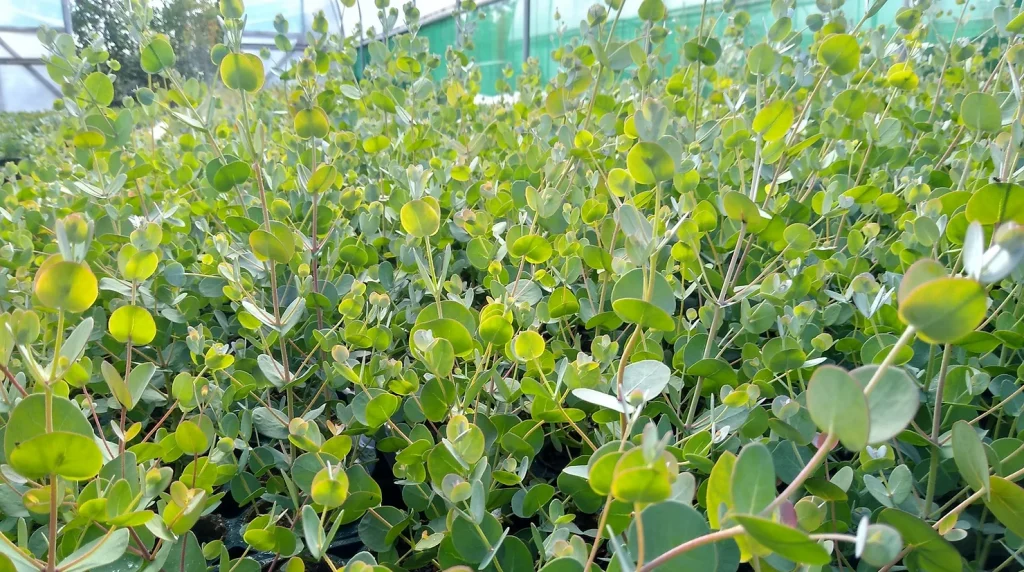
Eucalyptus are a tough bunch. I think that a degree of resilience is necessary for anything to survive in Australia, and the flora and fauna of that mysterious continent certainly has an innate ruggedness. Even the sheep will take your arm off if you turn your back on them!
We’re biased of course, with our wonderful hardy eucalyptus that can tolerate such a wide range of environmental conditions and climatic extremes. Eucalyptus have a very undeserved reputation in the UK for not being hardy, largely as a result of previous mistakes made by planting the wrong species in the wrong place. The perception is gradually shifting, and eucalyptus are now more widely being recognised as a resilient, hardy species.
I’m always on the lookout for interesting studies regarding our favourite tree genus, and this one is particularly fascinating. The title of the research article is ‘Differences in gene expression within a striking phenotypic mosaic Eucalyptus tree that varies in susceptibility to herbivory‘. A gripping title right? Definitely a good addition to the bedtime reading list! It was written by Amanda Padovan, Andras Keszei, William J Foley, and Carsten Kulheim, and published in BMC Plant Biology in 2013.
The premise of the article is the known ability of long-lived trees to acquire mutations throughout their life-cycles that influence biotic and abiotic interactions (biotic means living things like kangaroos and beetles and abiotic refers to wind, drought and so on). The mutations are known as somatic mutations, which means that they are mutations which are acquired after conception in any cells except germ cells. Somatic mutations are responsible for quite a few things, including nectarines (a genetic variant of the peach) and the different coloured flowers on Japanese morning glory (Pharbitis nil).
In Eucalyptus, this can be seen in a varied response to herbivory (things eating their leaves) in their canopies. The tree in question was a Eucalyptus melliodora which had been thoroughly nibbled across the entire canopy, except for one branch which showed much greater resistance. As part of the study, the leaves of two different chemotypes of the tree in question were sequenced. The authors concluded that changes to a ‘master switch’ can cause changes in the expression of terpenes (unsaturated hydrocarbons, the most famous derived product being turpentine) in the different areas. In short, a plant can accumulate somatic mutations throughout its lifespan that help it adjust to a changing environment. This particular eucalyptus acquired a mutation that changed the expression of terpenes in the leaves, which meant that part of the tree was less palatable for a specific herbivore.
Pretty interesting right? You can read the study in full at the below link:
https://bmcplantbiol.biomedcentral.com/articles/10.1186/1471-2229-13-29
